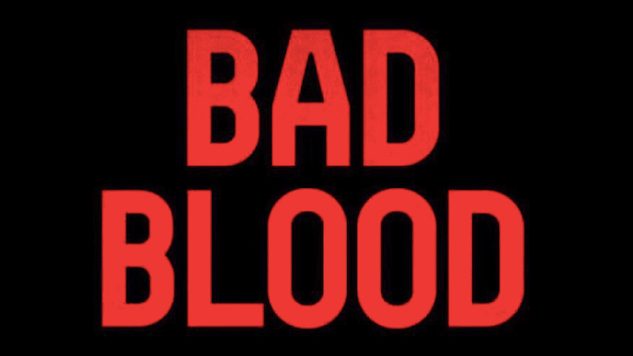Silicon Valley Has a Blind Spot, and John Carreyrou’s Bad Blood Exposes It

The public’s relationship with Silicon Valley is reaching an inflection point. After a decades-long fascination, replete with a cultish devotion to its luminaries and a staggering influx of capital, it has eroded one of the great cornerstones of capitalism itself: the need for success. Only in Silicon Valley is turning a profit not considered comme il faut, not if one genuflects and proselytizes with enough conviction to pry loose first the heart strings, then the purse strings.
But the Valley is now suddenly beset on all sides, not just by the Luddites and the off-the-gridders, but by the everyday people—the Facebook friends and the politicians who serve them. The missteps of Uber spilled beyond business-as-usual—harassment, spying, ego—and onto our very streets; its sacked CEO is finally proof that being a fundraiser may no longer be enough. From Facebook’s struggles with information security and foreign actors, the people have glimpsed the monster lurking in the depths of our data. Tech visionaries are now garnering sideways glances; the call to regulate, anathema to the Valley’s very essence, is echoing through the halls of D.C. and Brussels.
Silicon Valley is whipsawed by a paradox: it is both too telescopic—chasing, selling and buying into lofty goals—and too myopic—all drinking from the same incestuous Kool-Aid—to properly police itself. It suffers from an enormous blind spot. And with Theranos, that fatal flaw was laid bare in an egregious and life-threatening fashion.
Theranos promised to forever change the process of blood testing. Inspired by its CEO Elizabeth Holmes’ fear of needles, it claimed to run a myriad of tests on mere droplets of blood, and to do so fast. All of it was revealed as a fraud, false promises bilking investors out of millions while the blood Holmes’ company acquired—often drawn from a vein—was analyzed by Siemens machines.
 Wall Street Journal investigative reporter John Carreyrou’s new book, Bad Blood, is an exhaustive history of the company-cum-scam. In its fudged numbers, boardroom battles and sickening sums of money tossed Theranos’ way, Bad Blood succeeds in highlighting the Valley’s paradoxical blind spot.
Wall Street Journal investigative reporter John Carreyrou’s new book, Bad Blood, is an exhaustive history of the company-cum-scam. In its fudged numbers, boardroom battles and sickening sums of money tossed Theranos’ way, Bad Blood succeeds in highlighting the Valley’s paradoxical blind spot.
Silicon Valley’s focus on the Golden Snitch allowed Holmes, a masterful salesperson and a remarkably intelligent person, to snow investors and critics alike. Her dreams of revolutionizing an industry made her pitch, certainly too good to be true, too beautiful for due diligence. The need to find the next great unicorn was near religious in its fervency; her murderer’s row of a boardroom, including Jim Mattis, Henry Kissinger, David Boies and former Secretary of State George Shultz, and her funding from some of the Valley’s most respected and deep-pocketed venture capitalists, ensured any criticisms were smothered in a mix of devotion and reputation.
Here’s where Silicon Valley’s nepotism and incestuousness is on display. Stanford University undergirds the Theranos story like the roots of a redwood, binding money and prestige to everyone and everything attached to the company. From the board to the c-suite to numerous positions below, Theranos’ financial, familial, political and geographic ties ensured the company would grow unabated, its naysayers swept to the side. Dissent was not allowed; to step out of line or to question the company was to be fired and birddogged by some of the most savage lawyers in the world.
It was not until Carreyrou, acting on a tip and with the help of brave whistleblowers and disgruntled medical professionals, began his series of Wall Street Journal articles that the depth and scope of Theranos’ deceptions was revealed. In the fawning tech media, the company had found little opposition or push-back to its claims. But with a skeptical eye trained on it, and unshakeable sources, the fraud finally came to light.
Bad Blood reveals a crucial truth: outside observers must act as the eyes, the ears and, most importantly, the voice of Silicon Valley’s blind spot. Exaggerated promises, insular corporate cult culture and benevolent media coverage have allowed a monster to grow in the Valley. With Theranos, it gambled not with our smart phones, our attention or our democracy, but with people’s lives.
B. David Zarley is a freelance journalist, essayis, and book/art critic based in Chicago. A former book critic for The Myrtle Beach Sun News, he is a contributing reporter to A Beautiful Perspective and has been seen in The Atlantic, Hazlitt, Jezebel, Chicago, Sports Illustrated, VICE Sports, Creators, Sports on Earth and New American Paintings, among numerous other publications. You can find him on Twitter or at his website.







































